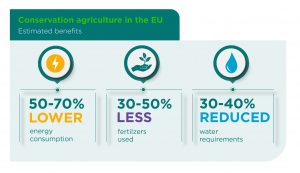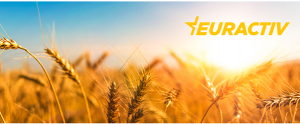GRG Newsletter- 1st Edition
Welcome to the Glyphosate Renewal Group (GRG) Newsletter
With the GRG newsletters, we will regularly share relevant information and updates, keeping you informed on the EU regulatory process’s milestones on the glyphosate re-authorisation and sharing information regarding the GRG efforts.
The GRG is committed to increased transparency and fostering an open dialogue on the renewal of the EU authorisation of the active substance glyphosate in 2022.
We are excited to share this with you, and we invite you to visit our website to learn more.
In this first edition, discover everything you wanted to know about glyphosate; what it is, its uses, what the GRG is, our commitment to transparency, and much more. Please do not hesitate to come back to us for any feedback: we listen, we engage.
___________________________________________________________________________
IN THIS APRIL 2021 ISSUE
Introduction
What is Glyphosate?
What is the Glyphosate Renewal Group (GRG)?
Glyphosate – EU authorisation
Committed to transparency
The Glyphosate Dossier is publicly available: We Listened, We learnt
Glyphosate in practice
Glyphosate allows for conservation agriculture practices
What are the environmental benefits of conservation agriculture?
Glyphosate’s positive impact on yields and harvests
Event
Policy Dialogue: Farming talks – Experiences from the field
___________________________________________________________________________
What is Glyphosate?
Glyphosate is a chemical substance used in numerous non-selective herbicides developed to combat unwanted invasive plants (weeds). Products based on glyphosate are approved for use in different applications such as agriculture, vegetation management, railways infrastructures, and more. Today, products based on glyphosate are registered and marketed in approximately 150 countries and are a safe and effective tool to control weeds when used in accordance with the label instructions.
___________________________________________________________________________
What is the Glyphosate Renewal Group (GRG)?
The GRG is a collection of companies seeking the renewal of the EU authorisation of the active substance glyphosate in 2022. To this end, the GRG member companies join resources and efforts, as provided for in Regulation 1107/2009 and encouraged by the EU institutions, to prepare a single dossier with the scientific studies and information on glyphosate safety.
___________________________________________________________________________
Glyphosate – EU authorisation
In the EU, glyphosate is authorised for use as an active substance in plant protection products until 15 December 2022. According to EU law, the approval of all active substances must be periodically reviewed. On 12 December 2017, the European Commission renewed the EU approval of glyphosate for 5 years, following a favourable vote by a qualified majority of Member States. A robust process requiring thorough scientific scrutiny by multiple competent and expert entities is at the basis of the ongoing EU re-authorisation review process to use glyphosate in herbicides after 15 December 2022.
______________________________________________________________________
The Glyphosate Dossier is publicly available: We Listened, We Learnt
The GRG is proud to announce that the scientific dossier, submitted as part of the EU glyphosate reapproval process, is publicly available. Via its website, the GRG grants unrestricted access to the various parts of the robust scientific dossier, including all glyphosate study reports commissioned by the GRG member companies, submitted on 8 June 2020 to the Assessment Group on Glyphosate (AGG).*
*The AGG is composed of the regulatory authorities of France, Hungary, the Netherlands, and Sweden, jointly acting as Rapporteur Member States for the assessment of the glyphosate dossier submitted for the renewal of the glyphosate approval.
______________________________________________________________________
Glyphosate allows for conservation agriculture practices
The safe application of glyphosate allows for no-tillage farming practices and enables the adherence to the principles of conservation agriculture, reducing to a minimum the use of chemical inputs for long-term control of invasive weeds. Should the use of glyphosate be excluded from farmers’ toolbox, 20.5 million hectares of land cultivated in Europe in accordance with conservation agriculture could revert to tillage practices, leading to an increase in fuel consumption and consequently in CO2 emissions, as well as an increase in production costs for farmers.
___________________________________________________________________________

What are the environmental benefits of conservation agriculture?
The adoption of conservation agriculture practices has several beneficial effects on the environment. As the soil is not disturbed by mechanical operations, its capacity to absorb water increases, as well as its capacity to retain nutrients. Consequently, the water requirement is reduced by 30-40% and the quantity of fertilisers needed to nourish the plants decreases by 30-50%. The soil also benefits from the use of cover crops, which help suppress weeds, promote biodiversity and reduce soil erosion and leaching of nutrients.
___________________________________________________________________________
Glyphosate’s positive impact on yields and harvests
Glyphosate operates in a very targeted manner to control invasive weeds and preserve farmers’ yields. Weeds compete with planted crops for nutrients, water, oxygen, and sunlight and can be vectors for other crop enemies such as insects and diseases. This slows down or impedes crops’ growth, therefore threatening a good outcome of the harvest and farmers’ revenues. The impact of glyphosate phase-out is estimated to be severe, particularly for wheat and barley yields.
___________________________________________________________________________
Event

Policy dialogue: Farming talks – Experiences from the field
Join the timely policy dialogue with farmers and other agricultural experts to discuss sustainable agriculture and glyphosate’s role in it.
___________________________________________________________________________



